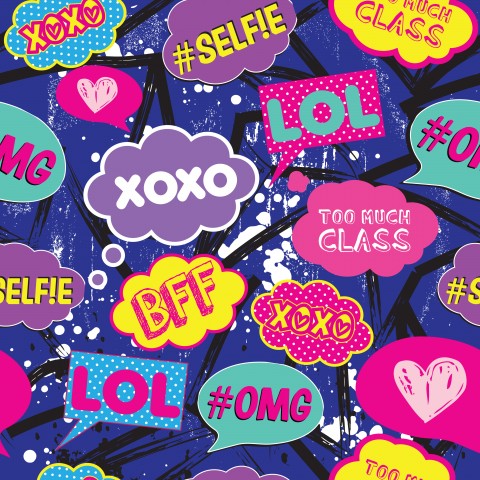
You’re learning to speak Dutch, and it’s going well. Your confidence is growing! So much so that you feel ready to share your experiences on social media—in Dutch.
At Learn Dutch, we make this easy for you to get it right the first time. Post like a boss with these phrases and guidelines, and get to practice your Dutch in the process.

1. Talking about Your Restaurant Visit in Dutch
Eating out is fun, and often an experience you’d like to share. Take a pic, and start a conversation on social media in Dutch. Your friend will be amazed by your language skills…and perhaps your taste in restaurants!
Jan eats at a restaurant with his friends, posts an image of the group, and leaves this comment:

POST
Let’s break down Jan’s post.
Uit eten met de mannen!
“Out for dinner with the guys!”
1- uit eten
First is an expression meaning “dining out.”
Thursdays and Fridays are especially popular to go out for dinner in the Netherlands. A word often related to food is “lekker,” which can be translated as “tasty” or “delicious.” In Dutch the verb “to eat” and the noun “food” are the same word: “eten”. It depends on the context and the sentence whether it is a verb or a noun.
2- met de mannen
Then comes the phrase – “with the guys.”
Note that this is only applicable to a group of guys. If you have a group of girls you would say “met de meiden,” which means “with the girls”. If the group is mixed you could say “met zijn allen,” which means “with all of us.”
COMMENTS
In response, Jan’s friends leave some comments.
1- Gezellig! Veel plezier!
His neighbor, Linda, uses an expression meaning – “Fun! Enjoy yourselves!”
Use this expression to show you are feeling warmhearted towards the poster and wish him well.
2- Niet te veel eten.
His girlfriend’s nephew, Bob, uses an expression meaning – “Don’t eat too much.”
Use this expression to admonish the poster to not overeat. Could be meant in a joking, teasing way, or it could be meant seriously. However, unless you know the poster well and has a very comfortable relationship, it’s seldom a good idea to instruct people on social media like they’re your children or inferiors!
3- Dat wordt genieten!
His high school friend, Chantal, uses an expression meaning – “It will be delicious!”
Use this expression if you want to comment on what the food looks like to you.
4- Eet smakelijk!
His girlfriend, Sanne, uses an expression meaning – “Bon appetit!”
This is a French loan-expression that roughly means: “Eat well!”
VOCABULARY
Find below the key vocabulary for this lesson:
mannen: “men”
gezellig: “fun (in social event)”
eten: “to eat”
genieten: “to enjoy”
smakelijk: “tasty”
plezier: “pleasure”
So, let’s practice a bit. If a friend posted something about having dinner with friends, which phrase would you use?
Now go visit a Dutch restaurant, and wow the staff with your language skills!
2. Post about Your Mall Visit in Dutch
Another super topic for social media is shopping—everybody does it, most everybody loves it, and your friends on social media are probably curious about your shopping sprees! Share these Dutch phrases in posts when you visit a mall.
Sanne shop with her sister at the mall, posts an image of it, and leaves this comment:

POST
Let’s break down Sanne’s post.
Wij zijn even winkelen.
“We’re out (for) shopping.”
1- wij zijn
First is an expression meaning “we are.”
Dutch people like shopping. This is done alone, with family or with friends. In the big cities, there are various shopping centers to go to. The local markets are also very popular, and you can find anything you want here: clothes, fish stands, groceries, sweets, etc. Dutch people also like to make a quick trip to Belgium or Germany for some shopping.
2- winkelen
Then comes the phrase – “go shopping.”
In most of the bigger cities, you will find that shops are open during the week, including Sundays. In the smaller cities, shops are open only one Sunday per month. Most shops are open from 9am to 5pm or 6pm, and they are also open at least one evening per week. Of course, supermarkets are open longer.
COMMENTS
In response, Sanne’s friends leave some comments.
1- Geld moet rollen!
Her high school friend, Stephanie, uses an expression meaning – “Money must flow!”
Use this expression to make a joking comment on the poster’s apparent riches.
2- Laat zien wat je hebt gekocht!
Her neighbor, Linda, uses an expression meaning – “Show us what you bought!”
Use this expression to show you curious about the poster’s purchases. A good conversation starter.
3- Ik ben blij dat ik niet mee hoef.
Her boyfriend, Jan, uses an expression meaning – “I’m glad I didn’t have to join”
Use this expression when you’re not fond of shopping. Usually said in a joking, teasing manner.
4- Wat leuk! Veel plezier, dames!
Her boyfriend’s high school friend, Chantal, uses an expression meaning – “How nice! Have fun, ladies!”
Use this expression to wish someone a good time shopping.
VOCABULARY
Find below the key vocabulary for this lesson:
winkelen: “to shop”
geld: “money”
zien: “to see”
blij: “happy”
leuk: “nice”
veel: “many”
dames: “ladies”
So, if a friend posted something about going shopping, which phrase would you use?
3. Talking about a Sport Day in Dutch
Sports events, whether you’re the spectator or the sports person, offer fantastic opportunity for great social media posts. Learn some handy phrases and vocabulary to start a sport-on-the-beach conversation in Dutch.
Jan plays with his friends at the beach, posts an image of the team on the beach, and leaves this comment:

POST
Let’s break down Jan’s post.
Wie gaat er mee volleyballen op het strand?
“Who wants to go play volleyball on the beach?”
1- wie gaat er mee volleyballen
First is an expression meaning “who wants to go play volleyball.”
Volleyball is a popular sport in the Netherlands. Everyone likes to play volleyball from time to time, both indoor and outdoor. Beach volleyball is played in the summertime on various beaches, and you can even join small tournaments with your friends.
2- op het strand
Then comes the phrase – “on the beach.”
The Netherlands has lovely sandy beaches all along the west coast. They are far from tropical (no clear blue water), but the sand is nice. During the year there are a lot of surfers, and during the summer there are a lot of beach clubs along the water. Throughout the year it is nice to have a stroll down the beach, and in the summer, when the weather is nice, you can go swimming. Also, every night you can enjoy a beautiful sunset.
COMMENTS
In response, Jan’s friends leave some comments.
1- Ik heb al genoeg gesport vandaag.
His supervisor, Nico, uses an expression meaning – “I already worked out enough for today.”
Use this expression to explain that you’ve done a lot of exercise already, which is why you cannot join the game.
2- Volgende keer ben ik er weer bij.
His college friend, Erik, uses an expression meaning – “I’ll be there again next time.”
Use this expression to state you intention to join in the teamsport next time.
3- Ik wil mee!
His high school friend, Chantal, uses an expression meaning – “I want to join!”
Use this expression if you’re feeling eager to join the team.
4- Het weer is geweldig!
His neighbor, Linda, uses an expression meaning – “The weather is amazing!”
Use this expression just to make conversation by adding a positive comment about the weather.
VOCABULARY
Find below the key vocabulary for this lesson:
strand: “beach”
genoeg: “enough”
volgende: “next”
keer: “time”
weer: “weather”
geweldig: “amazing”
Which phrase would you use if a friend posted something about sports?
But sport is not the only thing you can play! Play some music, and share it on social media.
4. Share a Song on Social Media in Dutch
Music is the language of the soul, they say. So, don’t hold back—share what touches your soul with your friends!
Sanne shares a song she just heard at a party, posts an image of the artist, and leaves this comment:

POST
Let’s break down Sanne’s post.
Leuk nummer dit! Gisteren gehoord op een feestje.
“This is a great song! I heard it at a party yesterday.”
1- Leuk nummer dit!
First is an expression meaning “This is a great song!.”
The Dutch word “nummer” can refer to a song, but it also means “number.”
2- Gisteren gehoord op een feestje.
Then comes the phrase – “I heard it at a party yesterday..”
In the Netherlands, Thursdays are mostly student nights for partying or going out. Fridays are great for an after-work drink, followed by a party. Both Fridays and Saturdays are great for clubbing. In the summer there are a lot of outdoor festivals, both in Belgium and the Netherlands, even if the weather is not great.
COMMENTS
In response, Sanne’s friends leave some comments.
1- Lekker dansnummertje.
Her high school friend, Stephanie, uses an expression meaning – “Great song to dance to.”
Use this expression to share your opinion that you consider the song great to dance to.
2- Ik ken deze al 2 maanden.
Her nephew, Bob, uses an expression meaning – “I’ve known this already for two months.”
Use this expression to brag a bit that the song is old news for you.
3- Was het een leuk feestje?
Her neighbor, Linda, uses an expression meaning – “Was it a nice party?”
Use this expression to show you are curious about the poster’s party, and want to know more.
4- Super! Fijne beat.
Her college friend, Erik, uses an expression meaning – “Great! Nice beat.”
Use this expression to agree with the poster, and think that the song has a good rhythm or percussion.
VOCABULARY
Find below the key vocabulary for this lesson:
nummer: “song”
goed: “good”
maand: “month”
feestje: “party”
dans: “dance”
Which song would you share? And what would you say to a friend who posted something about sharing music or videos?
Now you know how to start a conversation about a song or a video on social media!
5. Dutch Social Media Comments about a Concert
Still on the theme of music—visiting live concerts and shows just have to be shared with your friends. Here are some handy phrases and vocab to wow your followers in Dutch!
Jan goes to a DJ concert, posts an image of of the DJ at work, and leaves this comment:

POST
Let’s break down Jan’s post.
De sfeer zit er goed in! Wat een artiest!
“Amazing atmosphere! What an artist!”
1- De sfeer zit er goed in!
First is an expression meaning “Amazing atmosphere!.”
You can use this sentence in all kinds of social contexts: parties, concerts, dinners, events, meetings. It is sometimes used sarcastically to mean that the atmosphere is not so great.
2- Wat een artiest!
Then comes the phrase – “What an artist!.”
There are a lot of well known Dutch DJs, such as DJ Tiesto, Armin van Buuren, Hardwell and Martin Garrix.
COMMENTS
In response, Jan’s friends leave some comments.
1- Ik was daar ook! Heb je niet gezien.
His college friend, Erik, uses an expression meaning – “I was there too! I didn’t see you.”
Use this expression to make conversation about a shared experience, or to joke a bit. Very often, these concerts are attended by thousands, so missing a person you know is easy.
2- Kippenvel! Zo mooi!
His girlfriend, Sanne, uses an expression meaning – “Goosebumps! Really beautiful!”
Use this phrase to express how positively you experience the song.
3- Wat bijzonder!
His neighbor, Linda, uses an expression meaning – “How special!”
Use this expression to agree with the poster that the song they posted is unique.
4- Ik heb het album. Prachtige muziek.
His high school friend, Chantal, uses an expression meaning – “I have the album. Beautiful music.”
Use this expression to agree with the poster that the artist is good, cause you have the album.
VOCABULARY
Find below the key vocabulary for this lesson:
sfeer: “atmosphere”
daar: “there”
kippenvel: “goosebumps”
bijzonder: “special”
prachtig: “wonderful”
muziek: “music”
artiest: “artist”
If a friend posted something about a concert , which phrase would you use?
6. Talking about an Unfortunate Accident in Dutch
Oh dear. You broke something by accident. Use these Dutch phrases to start a thread on social media. Or maybe just to let your friends know why you are not contacting them!
Sanne accidentally breaks her mobile phone, and leaves this comment:

POST
Let’s break down Sanne’s post.
Ik ben even niet bereikbaar. Mijn telefoon is kapot!
“I’m unreachable. My phone is broken!”
1- Ik ben even niet bereikbaar
First is an expression meaning “I’m not reachable..”
You can also use this sentence for your voicemail or when you are on holiday and can’t be reached.
‘Bereikbaar’ means reachable or available. It can also be used for a location, as in: “This place is hard to reach.” In Dutch, “Deze plek is moeilijk bereikbaar”
2- Mijn telefoon is kapot
Then comes the phrase – “My phone is broken!.”
If you have some issues with your mobile phone, you could take it to one of the many small mobile phone repair shops. To replace a screen or camera, get a new charger or to have your phone made sim-free, this is the place to go if you don’t want to wait a long time at a bigger shop, or spend a lot of money on repair costs.
COMMENTS
In response, Sanne’s friends leave some comments.
1- Het komt goed.
Her neighbor, Linda, uses an expression meaning – “It’ll be alright.”
Use this expression if you want to be encouraging.
2- Ik stuur wel een kaartje.
Her nephew, Bob, uses an expression meaning – “I’ll send a postcard instead.”
Use this expression when you’re feeling humorous and want to joke with the poster about their status of unreachability.
3- Wat een drama!
Her high school friend, Stephanie, uses an expression meaning – “What a drama!”
Use this expression to agree with the poster that losing a phone (or something else) is a big deal.
4- Dat ziet er niet goed uit.
Her college friend, Erik, uses an expression meaning – “That doesn’t look good.”
Use this expression to show the poster that losing something important isn’t good, almost the same as sympathizing with them.
VOCABULARY
Find below the key vocabulary for this lesson:
telefoon: “phone”
komen: “to come”
kaartje: “postcard, entrance ticket”
drama: “drama”
kapot: “broken”
bereikbaar: “reachable, available”
If a friend posted something about having broken something by accident, which phrase would you use?
So, now you know how to discuss an accident in Dutch. Well done!
7. Chat about Your Boredom on Social Media in Dutch
Sometimes, we’re just bored with how life goes. And to alleviate the boredom, we write about it on social media. Add some excitement to your posts by addressing your friends and followers in Dutch!
Jan gets bored at home, and leaves this comment:

POST
Let’s break down Jan’s post.
Ik verveel me. Iemand nog tips?
“I’m bored. Anyone have any tips?”
1- Ik verveel me
First is an expression meaning “I’m bored.”
Fun fact: in Dutch “bored” is a verb. No need to add “I am (bored)”. Bored is considered a verb in itself.
2- Iemand nog tips?
Then comes the phrase – “Anyone have any tips?.”
This sentence is great to ask for tips and advice on social media. You can use it for anything. Maybe you are planning a trip and you want tips, or you have a problem and you want some advice. Just state what you want tips about, for example, “Weekend trip to Amsterdam,” and then say ‘iemand nog tips?’
COMMENTS
In response, Jan’s friends leave some comments.
1- Het huis schoonmaken misschien?
His girlfriend, Sanne, uses an expression meaning – “Clean the house, maybe?”
Use this expression as a suggestion to while away time, thus alleviating boredom. This is probably meant in a joking manner.
2- Buiten een wandeling maken.
His supervisor, Nico, uses an expression meaning – “Take a walk outside.”
This is another suggestion to relieve boredom.
3- Kom gezellig koffie drinken!
His neighbor, Linda, uses an expression meaning – “Come by for coffee!”
This is an invitation for coffee; in this context, it is meant to alleviate boredom.
4- Wil je voetballen?
His girlfriend’s nephew, Bob, uses an expression meaning – “Wanna play soccer?”
Another invitation to help the poster deal with the extra time on hand.
VOCABULARY
Find below the key vocabulary for this lesson:
tips: “recommendation”
huis: “house”
wandelen: “to take a walk”
koffie: “coffee”
voetballen: “to play a soccer”
buiten: “outside”
iemand: “anyone”
If a friend posted something about being bored, which phrase would you use?
Still bored? Share another feeling and see if you can start a conversation!
8. Exhausted? Share It on Social Media in Dutch
Sitting in public transport after work, feeling like chatting online? Well, converse in Dutch about how you feel, and let your friends join in!
Sanne feels exhausted after a long day at work, posts an image of herself looking tired, and leaves this comment:

POST
Let’s break down Sanne’s post.
Wat een dag! Ik kan wel een week slapen.
“What a day! I can sleep for an entire week.”
1- Wat een dag!
First is an expression meaning “What a day!.”
“wat een dag” – “what a day” you can use this sentence in all sorts of contexts, both positive and negative. Use it when you had a rough day, a great day, if something really particular happened, or when you are really tired.
2- Ik kan wel een week slapen.
Then comes the phrase – “I can sleep for an entire week..”
Dutch and Belgian office hours usually run from Monday to Friday, 9am to 5pm with a 30 minute to 1 hour lunch break between 12:00 and 1pm.
COMMENTS
In response, Sanne’s friends leave some comments.
1- Ga lekker vroeg naar bed vanavond.
Her neighbor, Linda, uses an expression meaning – “Go to bed early tonight.”
Use this phrase if you mean to give the poster advice about their sleeping habits.
2- Morgen weer een nieuwe dag!
Her high school friend, Stephanie, uses an expression meaning – “Tomorrow’s another day!”
Use this expression if you want to be encouraging, reminding them, in a way, that their fatigue will pass.
3- Zet hem op!
Her boyfriend, Jan, uses an expression meaning – “You can do this!”
Use this expression to be encouraging and positive.
4- Het zijn drukke tijden.
Her supervisor, Nico, uses an expression meaning – “These are busy times.”
This is a somewhat laconic statement, employed to be part of the conversation by stating the obvious.
VOCABULARY
Find below the key vocabulary for this lesson:
dag: “day”
bed: “bed”
morgen: “tomorrow”
nieuw: “new”
druk: “busy”
week: “week”
slapen: “to sleep”
tijd: “time”
If a friend posted something about being exhausted, which phrase would you use?
Now you know how to say you’re exhausted in Dutch! Well done.
9. Talking about an Injury in Dutch
So life happens, and you manage to hurt yourself during a soccer game. Very Tweet-worthy! Here’s how to do it in Dutch.
Jan suffers a painful knee injury, posts an image of it, and leaves this comment:

POST
Let’s break down Jan’s post.
Nou, even geen sport voor mij… Heb mijn knie verdraaid.
“Well, no sports for me for now… Twisted my knee.”
1- Nou, even geen sport voor mij…
First is an expression meaning “Well, no sports for me for now….”
“Nou” can’t be literally translated in English. It means something like “well” and is often used in a somewhat cynical context.
2- Heb mijn knie verdraaid.
Then comes the phrase – “Got my knee twisted..”
On social media most posts are about yourself. So people often leave out the personal pronoun “I” = “ik”. Normally, you always need a personal pronoun before or after the verb in Dutch. But in written language, when a sentence is about yourself and the setting is informal like social media, you can start straight away with the verb, without the personal pronoun.
COMMENTS
In response, Jan’s friends leave some comments.
1- Ik hoop dat het snel beter gaat.
His neighbor, Linda, uses an expression meaning – “I hope it will get better soon.”
Use this expression to show that you are encouraging and wish the poster well.
2- Wat is er gebeurd?
His college friend, Erik, uses an expression meaning – “What happened?”
Ask this question if you are curious about the details regarding the injury. Questions are a great way to keep a conversation going.
3- Beterschap.
His high school friend, Chantal, uses an expression meaning – “Get well.”
Use this short expression to demonstrate goodwill and wish the poster a speedy recovery.
4- Dus je gaat niet mee zaterdag?
His girlfriend’s nephew, Bob, uses an expression meaning – “So you’re not coming Saturday?”
This question is also asking for more details, as the poster’s injury clearly has implications.
VOCABULARY
Find below the key vocabulary for this lesson:
knie: “knee”
beter: “better”
wat: “what”
beterschap: “get well soon”
zaterdag: “Saturday”
even: “temporarily, for the time being”
If a friend posted something about being injured, which phrase would you use?
We love to share our fortunes and misfortunes; somehow that makes us feel connected to others.
10. Starting a Conversation Feeling Disappointed in Dutch
Sometimes things don’t go the way we planned. Share your disappointment about this with your friends!
Sanne feels disappointed about today’s weather, posts an image of it, and leaves this comment:

POST
Let’s break down Sanne’s post.
Wat een rotweer!
“Such horrible weather!”
1- wat een
First is an expression meaning “such a.”
The weather is probably the most favorite subject of discussion for the Dutch. It is often raining and people love to complain about it. Also, when the weather is great, people will often use this as a casual conversation starter. There is always something to say about the weather.
2- rotweer
Then comes the phrase – “horrible weather.”
Because there is so much rain in the Netherlands, people are used to it. They will still go out to ride their bikes, and there is plenty to do and see indoors, like visiting nice museums.
COMMENTS
In response, Sanne’s friends leave some comments.
1- Goed weer om binnen te blijven.
Her boyfriend’s high school friend, Chantal, uses an expression meaning – “Great weather to stay inside.”
Use this expression to put a positive spin on the situation.
2- Hier schijnt de zon.
Her college friend, Erik, uses an expression meaning – “Here, the sun is shining.”
Use this expression to share information and make conversation.
3- Morgen zou het beter worden.
Her neighbor, Linda, uses an expression meaning – “It should be better tomorrow.”
Use this expression if you want to be encouraging by pointing out the positive.
4- Wil je naar de bios?
Her boyfriend, Jan, uses an expression meaning – “Wanna go to the movies?”
Use this question to make a suggestion that will distract the poster’s attention from the weather.
VOCABULARY
Find below the key vocabulary for this lesson:
weer: “weather”
binnen: “inside”
zon: “sun”
hier: “here”
bios: “cinema (slang)”
How would you comment in Dutch when a friend is disappointed?
Not all posts need to be about a negative feeling, though! Why not talk about romance? That will lift anyone’s mood!
11. Talking about Your Relationship Status in Dutch
Don’t just change your relationship status in Settings, talk about it!
Jan changes his status to “In a relationship”, posts an image of him and Sanne together, and leaves this comment:

POST
Let’s break down Jan’s post.
Heel blij met deze dame.
“Very happy with this lady.”
1- heel blij
First is an expression meaning “very happy.”
When making a happy announcement, like a promotion, engagement, marriage, or birthday, it is customary to congratulate someone by saying: ‘Gefeliciteerd!’ (English: “Congratulations!” )
2- met deze dame
Then comes the phrase – “with this lady.”
You could also wish the couple well by saying: ‘Veel geluk samen!’, which is – “Much happiness together!”
COMMENTS
In response, Jan’s friends leave some comments.
1- Gefeliciteerd!
His college friend, Erik, uses an expression meaning – “Congratulations!”
As said, this is the traditional way to congratulate anyone on positive news.
2- Geweldig nieuws!
His neighbor, Linda, uses an expression meaning – “Great news!”
Use this expression if you want to make it clear that you really good about the news.
3- Veel geluk samen.
His supervisor, Nico, uses an expression meaning – “Much happiness together!”
As said, this is another traditional way to congratulate specifically a couple on their relationship.
4- Ik wil haar graag ontmoeten.
His high school friend, Chantal, uses an expression meaning – “I would love to meet her.”
This phrase indicates that you have not met the poster’s belle yet, but feel positive about the prospect.
VOCABULARY
Find below the key vocabulary for this lesson:
dame: “lady”
gefeliciteerd: “congratulations”
nieuws: “news”
geluk: “luck”
ontmoeten: “to meet”
blij: “happy”
samen: “together”
haar: “her”
What would you say in Dutch when a friend changes their relationship status?
Being in a good relationship with someone special is good news – don’t be shy to spread it!
12. Post about Getting Married in Dutch
Wow, so things got serious, and you’re getting married. Congratulations! Or, your friend is getting married, so talk about this in Dutch.
Sanne is getting married today, so she eaves this comment:

POST
Let’s break down Sanne’s post.
Vandaag geef ik jou het ja-woord. Dit is de mooiste dag van mijn leven!
“Today, I give you my vows. The most beautiful day of my life!”
1- Vandaag geef ik jou het ja-woord
First is an expression meaning “Today I give you my vows. .”
Instead of just “I do” to confirm your wedding vows, the Dutch say “yes, I do”. Therefore, they say, “het ja-woord,” which literally means “the yes word.”
2- De mooiste dag van mijn leven
Then comes the phrase – “The most beautiful day of my life!.”
Weddings in the Netherlands only last one day. It is usually a ceremony followed by a reception with a cake and some dancing. Sometimes, dinner is also offered, but this is usually only for a small group of close family and friends.
COMMENTS
In response, Sanne’s friends leave some comments.
1- Jullie zijn een prachtig stel!
Her neighbor, Linda, uses an expression meaning – “You’re a wonderful couple!”
Use this expression when you feel really good about this match, and compliment the couple on it.
2- Een prachtige dag voor een bruiloft. Gefeliciteerd!
Her college friend, Erik, uses an expression meaning – “A beautiful day for a wedding. Congrats! ”
Use this expression when you feel the weather is playing with for a beautiful wedding. You also congratulate the couple.
3- Je bent de mooiste bruid!
Her high school friend, Stephanie, uses an expression meaning – “You’re the most beautiful bride!”
Use this expression to compliment the bride on looking stunning.
4- Gefeliciteerd. Veel geluk samen.
Her supervisor, Nico, uses an expression meaning – “Congratulations. Much happiness together.”
This is an old-fashioned or traditional congratulatory wish for newly-weds.
VOCABULARY
Find below the key vocabulary for this lesson:
vandaag: “today”
stel: “couple”
bruiloft: “wedding”
bruid: “bride”
feliciteren: “to congratulate”
mooi: “beautiful”
dag: “day”
How would you respond in Dutch to a friend’s post about getting married?
For the next topic, fast forward about a year into the future after the marriage…
13. Announcing Big News in Dutch
Wow, huge stuff is happening in your life! Announce it in Dutch.
Jan finds out he and his wife are going to have a baby, and leaves this comment:

POST
Let’s break down Jan’s post.
Het is officieel. We krijgen een kleine!
“It’s official. We’re having a little one!”
1- Het is officieel!
First is an expression meaning “It’s official! .”
You can use this expression for any big reveal: having a baby, announcing a new job, arranging travel plans, getting your diploma, etc.
2- We krijgen een kleine!
Then comes the phrase – “We are getting a little one!.”
It is custom in the Netherlands for the name of the baby to be revealed only after the baby is born. After the baby’s arrival, all the friends and family receive a postcard with the name of the baby, the time it was born, and more info about if and when you can visit.
COMMENTS
In response, Jan’s friends leave some comments.
1- Gefeliciteerd!
His college friend, Erik, uses an expression meaning – “Congratulations!”
This is the customary, traditional short way to congratulate anyone on a big, positive happening in their lives.
2- Krijg ik een neefje of een nichtje?
His nephew, Bob, uses an expression meaning – “Will I get a nephew or a niece?”
This questions shows that you are curious about the gender of the baby. Questions are good conversation starters.
3- Gefeliciteerd! Wat een geweldig nieuws!
His neighbor, Linda, uses an expression meaning – “Congrats! What great news!”
This is another positive and enthusiastic way to congratulate anyone on a happy announcement.
4- Jullie eerste kindje! Gefeliciteerd!
His high school friend, Chantal, uses an expression meaning – “Your first baby! Congratulations!”
These phrases combine the traditional congratulations and an exclamation that states an obvious fact. Yet, the latter emphasizes obvious enthusiasm and happiness about the announcement.
VOCABULARY
Find below the key vocabulary for this lesson:
klein: “little”
krijgen: “to get”
neef: “nephew, cousin”
nicht: “niece, cousin”
kind: “child”
eerste: “first”
Which phrase would you choose when a friend announces their pregnancy on social media?
So, talking about a pregnancy will get you a lot of traction on social media. But wait till you see the responses to babies!
14. Posting Dutch Comments about Your Baby
Your bundle of joy is here, and you cannot keep quiet about it! Share your thoughts in Dutch.
Sanne plays with her baby, posts an image of the little one, and leaves this comment:

POST
Let’s break down Sanne’s post.
Wat een schatje! Net als haar vader.
“What a sweetheart! Just like her father.”
1- Wat een schatje!
First is an expression meaning “What a sweetheart!.”
“schatje”= sweetheart is an expression you would only use for your partner, your child or a person/child very close to you.
2- Net als haar vader.
Then comes the phrase – “Just like her father..”
“net als” is used to compare one thing with another. In this example, Sanne thinks the baby is as cute as its father. Aside from using this expression with people, it can also be used for objects or places. For instance: “De zee is blauw hier, net als tuis”, which means: “The sea is blue here, just like at home”.
COMMENTS
In response, Sanne’s friends leave some comments.
1- Ze groeit zo snel.
Her college friend, Erik, uses an expression meaning – “She is growing so quickly”
This is a positive comment pertaining to the baby’s development, a pretty standard one in most languages. It’s a way to partake in the conversation.
2- Net als haar moeder!
Her neighbor, Linda, uses an expression meaning – “Just like her mom!”
Use this expression to compliment the mother.
3- Ze lijkt meer op jou.
Her nephew, Bob, uses an expression meaning – “She looks more like you.”
Use this expression if you want to emphasize the similarity between the poster and the baby.
4- Zo lief! Ik kom snel weer langs.
Her high school friend, Stephanie, uses an expression meaning – “So cute! I will pass by again soon.”
These phrases expresses admiration for the baby, and announces that you will visit the family at home soon.
VOCABULARY
Find below the key vocabulary for this lesson:
schatje: “cutie”
snel: “quick”
moeder: “mother”
lijken: “to seem”
lief: “cute”
vader: “father”
If your friend is a mother or father showing off their cutie pie, which phrase would you use on social media?
Congratulations, you know the basics of chatting about a baby in Dutch! But we’re not done with families yet…
15. Dutch Comments about a Family Reunion
Family reunions – some you love, some you hate. Share about it on your feed.
Jan goes to a family gathering, posts an image of it, and leaves this comment:

POST
Let’s break down Jan’s post.
De hele familie bij elkaar, gezellig!
“The whole family together, fun!”
1- de hele familie bij elkaar
First is an expression meaning “the whole family together.”
“fam” is short for “familie”. This includes your direct family (Mom, Dad, and siblings), as well as your aunts, uncles, grandmas, grandpas, cousins and nephews.
In Dutch there is no linguistic distinction between nephew and cousin, both mean ‘neef’. Same for niece and cousin; they both are called ‘nicht’ in Dutch.
2- gezellig
Then comes the phrase – “fun.”
Family reunions in the Netherlands are very different depending on the family. In general, the most important family events of the year are birthday parties. These are celebrated with the whole family, as well as friends and neighbors. It doesn’t matter where you live in the Netherlands, if there is a birthday party, people will make an effort to enjoy the day with friends and family.
COMMENTS
In response, Jan’s friends leave some comments.
1- Wat een grote familie!
His neighbor, Linda, uses an expression meaning – “Such a big family!”
Use this expression to comment on the size of the family. A good one to post if you’re not part of the poster’s family, or if you don’t know them well.
2- Dit is zo saai.
His nephew, Bob, uses an expression meaning – “This is so boring.”
This is a personal opinion about family gatherings, and not a positive one.
3- Ziet er gezellig uit!
His high school friend, Chantal, uses an expression meaning – “Looks very cozy!”
Use this expression if you feel the family members look comfortable and relatively happy together.
4- Het was een hele leuke dag. Bedankt allemaal!
His wife, Sanne, uses an expression meaning – “It was a great day. Thanks, everyone!”
Use this expression to show you are feeling grateful for a day that went well. It can be used as is for any type of day, not only a family gathering.
VOCABULARY
Find below the key vocabulary for this lesson:
familie: “family”
groot: “big”
saai: “boring”
zien: “to see”
bedankt: “thanks”
allemaal: “everyone”
Which phrase is your favorite to comment on a friend’s photo about a family reunion?
16. Post about Your Travel Plans in Dutch
So, the family are going on holiday. Do you know how to post and leave comments in Dutch about being at the airport, waiting for a flight?
Sanne waits at the airport for her flight, posts an image of it, and leaves this comment:

POST
Let’s break down Sanne’s post.
Ik kan niet wachten! Zon, zee, strand, ik kom eraan!
“I can’t wait! Sun, sea, beach, here I come!”
1- Ik kan niet wachten!
First is an expression meaning “I can’t wait!”
You can use this sentence for any situation you anticipate with a lot of excitement.
2- Zon, zee, strand, ik kom eraan!
Then comes the phrase – “Sun, sea, beach, here I come!”
As the weather is usually not great in the Netherlands, people love to go on holidays to warmer places like the south of Europe, Turkey or Egypt.
COMMENTS
In response, Sanne’s friends leave some comments.
1- Lekker! Geniet ervan!
Her husband’s high school friend, Chantal, uses an expression meaning – “Wonderful! Enjoy it!”
Use this expression to show you are feeling excited for the poster and wish them well.
2- Fijne vakantie!
Her supervisor, Nico, uses an expression meaning – “Happy holidays!”
This phrase is an old-fashioned but often used to wish someone a good experience during the holidays.
3- Niet te bruin worden hoor.
Her high school friend, Stephanie, uses an expression meaning – “Don’t get tanned too much.”
This is an admonition for the poster to not stay in the sun for too long. Everyone knows the perils of sunburn, so this is just a reminder.
4- Goede vlucht!
Her neighbor, Linda, uses an expression meaning – “Nice flight!”
Use this expression to wish the holiday-goers a pleasant flight to their destination.
VOCABULARY
Find below the key vocabulary for this lesson:
wachten: “to wait”
kunnen: “to be able”
vakantie: “holiday”
niet: “not”
goed: “good”
vlucht: “flight”
Choose and memorize your best airport phrase in Dutch!
Hopefully the trip is great!
17. Posting about an Interesting Find in Dutch
So maybe you’re strolling around at the local market, and find something interesting. Here are some handy Dutch phrases to use to share your experiences!
Jan finds an unusual item at a local market, posts an image of it, and leaves this comment:

POST
Let’s break down Jan’s post.
Wat een vondst! Misschien is het wel een miljoen waard!
“Look what I found! Maybe it’s worth a million!”
1- Wat een vondst!
First is an expression meaning “Look what I found!.”
“een vondst” is a find, a treasure. You can use it for an object but also for a place, like a really nice restaurant you found and want to share with your friends on social media. For this, you can use the sentence “wat een vondst!”
2- Misschien is het wel een miljoen waard!
Then comes the phrase – “Maybe it’s worth a million!.”
In the Netherlands it is not common to haggle in shops. At local markets it is a bit more common, but for stalls selling vintage items it is usually acceptable. The rule-of-thumb is that when items have a label with a price on it, there is very little opportunity for haggling.
COMMENTS
In response, Jan’s friends leave some comments.
1- Heel bijzonder!
His neighbor, Linda, uses an expression meaning – “Very special!”
Use this expression just to leave a comment and be part of the conversation. You agree with the poster that the find is unusual.
2- Wat is het?
His nephew, Bob, uses an expression meaning – “What is it?”
Ask this question to show you are interested in the topic, and would like to know more details.
3- Misschien word je wel rijk!
His college friend, Erik, uses an expression meaning – “Maybe you’ll be rich!”
Share this opinion if you think the find may be worth something.
4- Waar was dit?
His high school friend, Chantal, uses an expression meaning – “Where was this?”
This is another question after more details, and a good way to oil the conversation.
VOCABULARY
Find below the key vocabulary for this lesson:
misschien: “maybe”
bijzonder: “particular”
heel: “very”
rijk: “rich”
waar: “where”
dit: “this”
Which phrase would you use to comment on a friend’s interesting find?
Perhaps you will even learn the identity of your find! Or perhaps you’re on holiday, and visiting interesting places…
18. Post about a Sightseeing Trip in Dutch
Let your friends know what you’re up to in Dutch, especially when visiting a remarkable place! Don’t forget the photo.
Sanne visits a famous landmark, posts an image of it, and leaves this comment:

POST
Let’s break down Sanne’s post.
Er gaat niks boven de Amsterdamse grachten!
“Nothing beats the Amsterdam canals!”
1- er gaat niks boven
First is an expression meaning “nothing beats”.
Literally translated this sentence means “there is nothing above”. You can use this when you really like or enjoy something: ‘Er gaat niks boven een koud biertje’, which means, “Nothing beats a cold beer”. Or: “Er gaat niks boven mama’s zelfgemaakte pannekoeken’, which means, “Nothing beats mom’s homemade pancakes”.
2- de Amsterdamse grachten
Then comes the phrase – “the Amsterdam canals.”
Amsterdam has three major canals that form the historic centre. There are many other canals in the city, as well as two major rivers. One of those is Amsterdam’s access point to the North sea.
COMMENTS
In response, Sanne’s friends leave some comments.
1- Ik ken nog een leuk lunchtentje, zit daar om de hoek
Her high school friend, Stephanie, uses an expression meaning – “I know a lovely place to have lunch, just around the corner from there.”
This comment shares a personal detail, demonstrating knowledge of the topic of discussion, and is a good way to stay part of the conversation.
2- Niet voor mij, veel te druk.
Her nephew, Bob, uses an expression meaning – “Not for me, way too busy.”
Use this expression to share your opinion about a destination.
3- Heerlijke stad!
Her neighbor, Linda, uses an expression meaning – “Wonderful city!”
This expression is the opposite of the previous, negative one.
4- Ik ga er binnenkort heen! Heb je nog tips?
Her husband’s high school friend, Chantal, uses an expression meaning – “I will go there soon! Any tips?”
Use these phrases to indicate your intention to also visit the destination under discussion. You also ask for tips from friends about this destination.
VOCABULARY
Find below the key vocabulary for this lesson:
gracht: “canal”
hoek: “corner”
mij: “me”
stad: “city”
gaan: “to go”
hebben: “to have”
niks: “nothing”
Which phrase would you prefer when a friend posts about a famous landmark?
Share your special places with the world. Or simply post about your relaxing experiences.
19. Post about Relaxing Somewhere in Dutch
So you’re doing nothing, yet you enjoy that too? Tell your social media friends about it in Dutch!
Jan enjoys himself at a beautiful place, posts an image of him relaxing, and leaves this comment:

POST
Let’s break down Jan’s post.
Koud biertje erbij. Ik ga nergens heen.
“Cold drink in my hand. I’m not going anywhere.”
1- Koud biertje erbij.
First is an expression meaning “Cold drink in my hand..”
The Dutch word “erbij” is not directly translatable in English. It is more of an informal slang word. It could be used in the context of an object that you are holding, like food or drinks as in this example. But it can also be used in a question form to ask if someone wants this particular food/drink item. For instance: “Biertje erbij?”, meaning “Would you like a beer with that?”
2- Ik ga nergens heen.
Then comes the phrase – “I’m not going anywhere…”
Literally translated, this means “I’m going nowhere.” You can use this when you really like a place or situation (like a holiday, party, event or festival) and you want to stay there.
COMMENTS
In response, Jan’s friends leave some comments.
1- Ik kom eraan gast.
His college friend, Erik, uses an expression meaning – “I’m on my way, dude.”
Use this expression to show you’re very keen to join the poster, wherever they are. This is meant to be a joke, unless you have an actual arrangement to meet, of course.
2- Ziet er goed uit!
His neighbor, Linda, uses an expression meaning – “Looks great!”
Use this expression to partake in the conversation by exclaiming that the poster looks really good.
3- Waar is dit ook alweer?
His high school friend, Chantal, uses an expression meaning – “Where is this again?”
Use this question to find out more details about the poster’s destination.
4- Hoor jij niet op het werk te zijn?
His nephew, Bob, uses an expression meaning – “Shouldn’t you be at work?”
This question is probably meant as a joke, just to be part of the discussion.
VOCABULARY
Find below the key vocabulary for this lesson:
bier: “beer”
nergens: “nowhere”
helemaal: “completely”
gast: “dude”
waar: “where”
werken: “to work”
ook alweer: “again”
Which phrase would you use to comment on a friend’s feed?
The break was great, but now it’s time to return home.
20. What to Say in Dutch When You’re Home Again
And you’re back! What will you share with friends and followers?
Sanne returns home after a vacation, but posts an image of their holiday home, and leaves this comment:

POST
Let’s break down Sanne’s post.
Ik mis dit nu al! Zullen we nog een weekje gaan?
“I miss this already! Let’s go for another week, agree?”
1- Ik mis dit nu al!
First is an expression meaning “I miss this already!”
You can use the phrase ‘Ik mis’, which means “I miss” for many things: a person, a situation, a job, the sun, etc. If you miss someone and you want to tell them you can say ‘Ik mis jou’ (“I miss you” ). “Ik mis” can be followed by any verb or article plus noun.
2- Zullen we nog een weekje gaan?
Then comes the phrase – “Let’s go for another week?”
“Weekje” is the diminutive of “week,” which also means “week” in English. By placing “je” or “tje” behind a noun you turn a word into the diminutive form in Dutch. For example: ‘dagje’ (“little day” ) or ‘fototje’ (“little photo” ). It is a way of expressing positive feelings about the subject under discussion, and a typically Dutch way of talking.
COMMENTS
In response, Sanne’s friends leave some comments.
1- Ik wil foto’s zien!
Her college friend, Erik, uses an expression meaning – “I want to see the pictures!”
Use this expression when you are keen to see the photos of the holiday.
2- Ik kom morgen langs en wil al je verhalen horen.
Her high school friend, Stephanie, uses an expression meaning – “I will come by tomorrow and listen to your stories.”
Use this expression to invite yourself over for a catch-up with the family.
3- Waar ben je geweest?
Her neighbor, Linda, uses an expression meaning – “Where have you been?”
This is a question to ask for more details about the destination of the holiday.
4- Ik ben blij dat je het leuk hebt gehad.
Her supervisor, Nico, uses an expression meaning – “I’m glad you enjoyed it.”
This is a friendly expression of gratitude for the family’s sake, and a positive way to add to the conversation.
VOCABULARY
Find below the key vocabulary for this lesson:
terug: “back”
foto: “photo”
verhalen: “stories”
zijn: “to be”
blij: “happy”
langskomen: “to come by, to visit”
horen: “to hear”
How would you welcome a friend back from a trip?
What do you post on social media during a public commemoration day such as King’s Day?
21. It’s Time to Celebrate in Dutch
It’s an historic day and you wish to post something about it on social media. What would you say?
Jan plans to partake in a King’s Day festival or party, and leaves this comment:

POST
Let’s break down Jan’s post.
Koningsdag! Dat wordt weer een mooi feestje!
“King’s Day! That’s going to be a great party again!”
1- Koningsdag!
First is an expression meaning “King’s Day!.”
Traditionally King’s Day (or Queen’s day) was a holiday in the Netherlands that celebrated the birthday of the king or queen. Nowadays the king’s birthday is still celebrated but the social element is more important.
2- Dat wordt weer een mooi feestje!
Then comes the phrase – “This will be a good party!.”
On King’s Day, or in Dutch “Koningsdag”, there are big street parties and a lot of flea markets. People sell homemade foods or drinks in front of their houses. Everybody is dressed in orange, there are festivals going on everywhere, and in all the city centres there are fun activities. The atmosphere is always great.
COMMENTS
In response, Jan’s friends leave some comments.
1- Ik ga naar de vrijmarkt.
His neighbor, Linda, uses an expression meaning – “I’m going to the flea market.”
Use this expression to share your plans for the day.
2- Mijn oranje pak ligt alweer klaar.
His high school friend, Chantal, uses an expression meaning – “My orange outfit is ready for it.”
Use this expression to share a personal detail about your traditional costume for King’s Day.
3- Proost!
His college friend, Erik, uses an expression meaning – “Cheers!”
This is an enthusiastic, positive interjection that expresses enjoyment and conveys the general mood of the day.
4- Gefeliciteerd met onze koning!
His supervisor, Nico, uses an expression meaning – “Happy birthday to our King!”
This is an old-fashioned well wish of the monarch in the Netherlands on King’s Day.
VOCABULARY
Find below the key vocabulary for this lesson:
feestje: “party”
markt: “market”
oranje: “orange”
Proost: “Cheers”
Koning: “King”
onze: “our”
If a friend posted something about a holiday, which phrase would you use?
The King’s Day and other public commemoration days are not the only special ones to remember!
22. Posting about a Birthday on Social Media in Dutch
Your friend or you are celebrating your birthday in an unexpected way. Be sure to share this on social media!
Sanne goes to her birthday party, posts an image of the celebration, and leaves this comment:

POST
Let’s break down Sanne’s post.
Bedankt allemaal voor de cadeaus en de verjaardagswensen!
“Thanks everyone for the birthday wishes and gifts!”
1- Bedankt allemaal
First is an expression meaning “Thanks everyone.”
Younger people will often blend Dutch with English vocabulary. It is not uncommon to replace the Dutch “bedankt” with “thanks”.
2- voor de cadeaus en verjaardagswensen!
Then comes the phrase – “for the birthday wishes and gifts!”
In the Netherlands, when it’s your birthday you have to bring your own cake to your work or birthday party. Your friends, family and colleagues will bring you gifts for your birthday. This applies not only to children but to adults also.
COMMENTS
In response, Sanne’s friends leave some comments.
1- Van harte!
Her supervisor, Nico, uses an expression meaning – “Congratulations!”
This is the traditional way to congratulate someone on their birthday.
2- Gefeliciteerd! Ik hoop dat je een heerlijke dag hebt met je familie en vrienden.
Her neighbor, Linda, uses an expression meaning – “Congrats! I hope you have a wonderful day with your family and friends.”
This is a casual but warm-hearted well-wish and birthday congratulation.
3- Fijne verjaardag!
Her husband’s high school friend, Chantal, uses an expression meaning – “Happy birthday!”
The traditional birthday wish.
4- De taart was zo lekker! Ik wil meer!
Her high school friend, Stephanie, uses an expression meaning – “The cake was delicious! I want more!”
These phrases share personal details about the birthday party in a humorous manner.
VOCABULARY
Find below the key vocabulary for this lesson:
bedankt: “thanks”
verjaardag: “birthday”
vrienden: “friends”
fijn: “pleasant”
taart: “cake”
meer: “more”
cadeaus: “gifts”
If a friend posted something about birthday greetings, which phrase would you use?
23. Talking about New Year on Social Media in Dutch
Impress your friends with your Dutch New Year’s wishes this year. Learn the phrases easily!
Jan celebrates the New Year, posts an image of it, and leaves this comment:

POST
Let’s break down Jan’s post.
Gelukkig nieuwjaar iedereen! Proost!
“Happy New Year, everyone! Cheers!”
1- Gelukkig nieuwjaar iedereen
First is an expression meaning “Happy New Year, everyone!”
The words “new” and “year” have merged into one word when speaking of the new year that is about to start or has just started. Normally the words “new” and “year” are written separately. This is only relevant when you write it because in the pronunciation you don’t hear a difference.
2- Proost!
Then comes the phrase – “Cheers!”
At midnight on New Year’s eve, people usually toast with champagne. A traditional snack that is only available around New Year’s is called “oliebol,” which can be translated as “oil ball,” a deep fried dough snack with raisins.
COMMENTS
In response, Jan’s friends leave some comments.
1- Gelukkig nieuwjaar!
His neighbor, Linda, uses an expression meaning – “Happy New Year!”
This is the standard response to the poster’s New Year’s wish.
2- Proost, op een mooi jaar!
His high school friend, Chantal, uses an expression meaning – “Cheers to a wonderful year!”
Use this expression to toast the year to come, wishing everyone well.
3- De beste wensen!
His supervisor, Nico, uses an expression meaning – “Best wishes!”
Use this expression for a short and traditional New Year’s wish.
4- Jij ook gelukkig nieuwjaar!
His college friend, Erik, uses an expression meaning – “Happy New Year to you too!”
Use this expression to wish the poster the same as he wishes you.
VOCABULARY
Find below the key vocabulary for this lesson:
nieuwjaar: “New Year”
gelukkig: “happy”
jaar: “year”
beste wensen: “best wishes”
ook: “also”
iedereen: “everybody”
Which is your favorite phrase to post on social media during New Year?
But before New Year’s Day comes another important day…
24. What to Post on Christmas Day in Dutch
What will you say in Dutch about Christmas?
Sanne celebrates Christmas with her family, posts an image of the group, and leaves this comment:

POST
Let’s break down Sanne’s post.
Kerst vieren met de familie. Veel te veel gegeten!
“Celebrating Christmas with the family. I ate way too much!”
1- Kerst vieren met de familie
First is an expression meaning “Celebrating Christmas with the family. .”
In the Netherlands, Christmas Eve is celebrated on the 24th of December. The first Christmas day is celebrated on the 25th of December. And the second Christmas Day is celebrated on the 26th of December. So there are two days of Christmas. Christmas dinner is usually celebrated with the family and extended family on either of the two Christmas days. On the first day of Christmas, everything is closed. However, on the 2nd day of Christmas, supermarkets sometimes open for limited hours.
2- Ik heb veel te veel gegeten.
Then comes the phrase – “I ate way too much!.”
During Christmas there are so many homemade treats and family visits that people just eat all day long, and then there is also the Christmas dinner! So eating too much is a real thing.
COMMENTS
In response, Sanne’s friends leave some comments.
1- Fijne kerstdagen!
Her supervisor, Nico, uses an expression meaning – “Merry Christmas!”
Use this expression as a traditional seasonal wish.
2- Groetjes aan je ouders.
Her neighbor, Linda, uses an expression meaning – “Say hi to your parents.”
Give this instruction when you know the family, in particular the poster’s parents, and are known by them.
3- Geniet ervan.
Her high school friend, Stephanie, uses an expression meaning – “Enjoy it.”
This is a short and sweet well wish.
4- Iedereen een fijne kerst!
Her college friend, Erik, uses an expression meaning – “Merry Christmas to you all!”
This is a jovial version of the traditional season wish.
VOCABULARY
Find below the key vocabulary for this lesson:
Kerst: “Christmas”
Fijne kerstdagen: “Merry Christmas”
ouders: “parents”
genieten: “to enjoy”
jullie: “you (plural)”
vieren: “to celebrate”
familie: “family”
If a friend posted something about Christmas greetings, which phrase would you use?
So, the festive season is over! Yet, there will always be other days, besides a birthday, to wish someone well.
25. Post about Your Anniversary in Dutch
Some things deserve to be celebrated, like wedding anniversaries. Learn which Dutch phrases are meaningful and best suited for this purpose!
Jan celebrates his wedding anniversary with his wife, posts an image of the two of them together, and leaves this comment:

POST
Let’s break down Jan’s post.
Ik ben de gelukkigste man op aarde dat ik jou al 1 jaar mijn vrouw mag noemen!
“I’m the happiest man on earth that I may call you my wife for 1 year already!”
1- Ik ben de gelukkigste man op aarde
First is an expression meaning “I’m the happiest man on earth.”
‘Gelukkigste’, which is “happiest”, is the superlative of “gelukkig/happy”. When you are happy, you say: “Ik ben gelukkig”.
2- dat ik jou al 1 jaar mijn vrouw mag noemen!
Then comes the phrase – “that I may call you my wife for 1 year already!.”
In Dutch the word “vrouw’ means both woman and wife, depending on the context. The same goes for husband. So ‘vrouw’ is “wife” in this context. Another word for “wife” is “echtgenote”, but this is only used in formal settings. For husband it is “echtgenoot”. But you won’t use these on social media.
COMMENTS
In response, Jan’s friends leave some comments.
1- Je bent de beste! Ik hou van jou.
His wife, Sanne, uses an expression meaning – “You are the best! I love you.”
Use these phrases to express your appreciation of the couple, and tell them of your affection for them.
2- Gefeliciteerd lieverds!
His wife’s high school friend, Stephanie, uses an expression meaning – “Congrats darlings!”
This is an affectionate expression of congratulations. It could be used in settings other than this one, whenever you wish to casually congratulate more than one person.
3- De tijd vliegt! Gefeliciteerd!
His neighbor, Linda, uses an expression meaning – “Time flies! Congrats!”
These phrases express an opinion about fleeting time, and congratulations.
4- Nog vele jaren.
His supervisor, Nico, uses an expression meaning – “For many years.”
Use this expression to be old fashioned.
VOCABULARY
Find below the key vocabulary for this lesson:
jaar: “year”
Ik hou van jou: “I love you”
lieverd: “darling”
vliegen: “to fly”
veel: “many”
vrouw: “woman”
kwijt: “lost”
beste: “best”
If a friend posted something about Anniversary greetings, which phrase would you use?
Conclusion
Learning to speak a new language will always be easier once you know key phrases that everybody uses. These would include commonly used expressions for congratulations and best wishes, etc.
Master these in fun ways with Learn Dutch! We offer a variety of tools to individualize your learning experience, including using cell phone apps, audiobooks, iBooks and many more. Never wonder again what to say on social media!








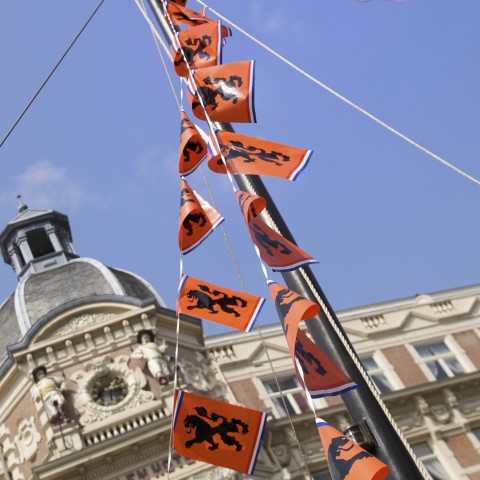
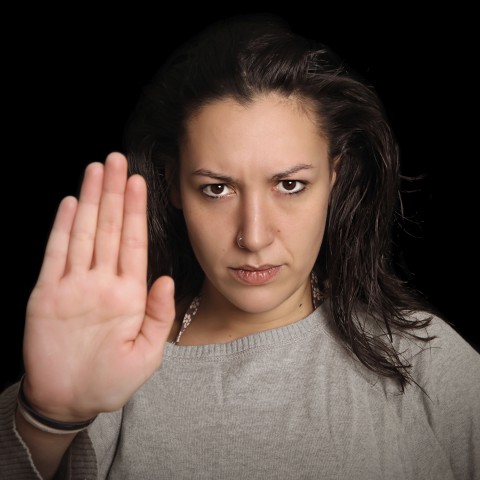


















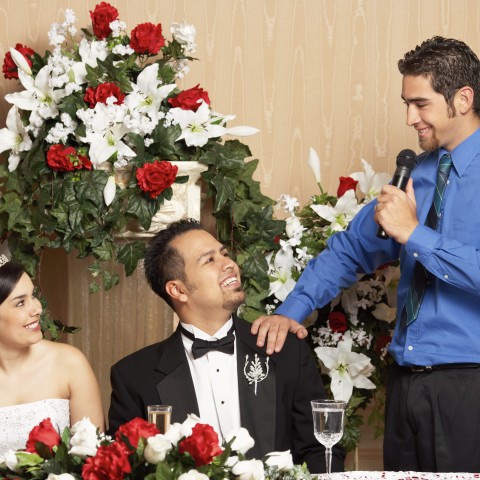






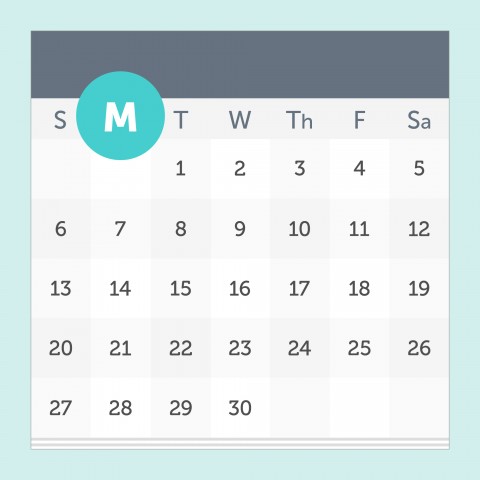
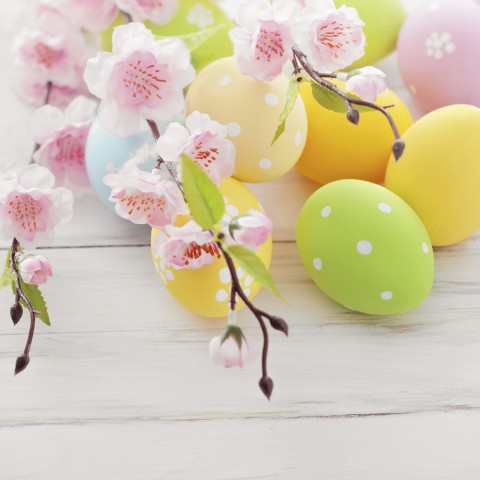
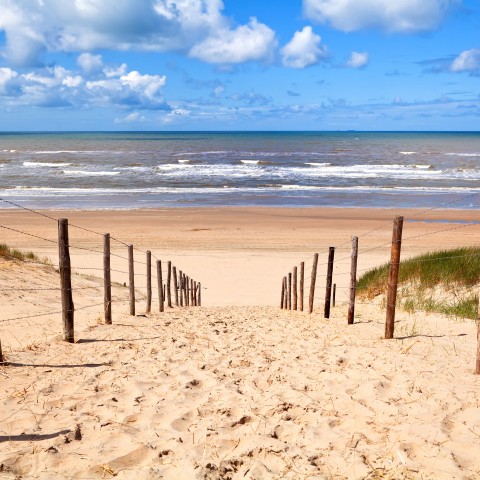















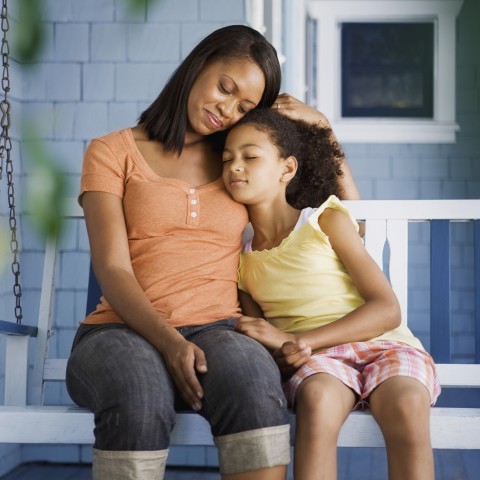

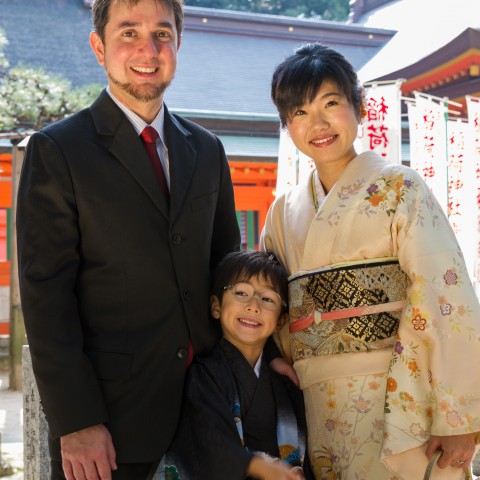


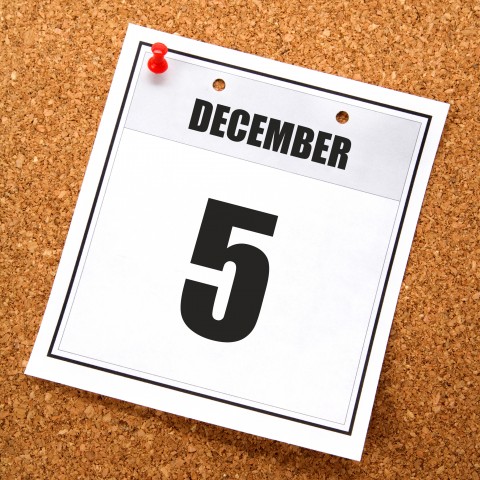
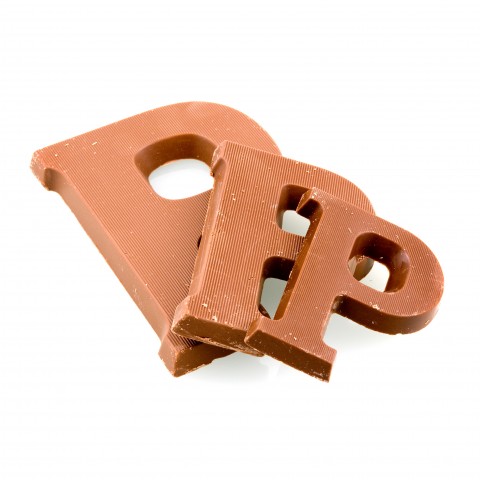
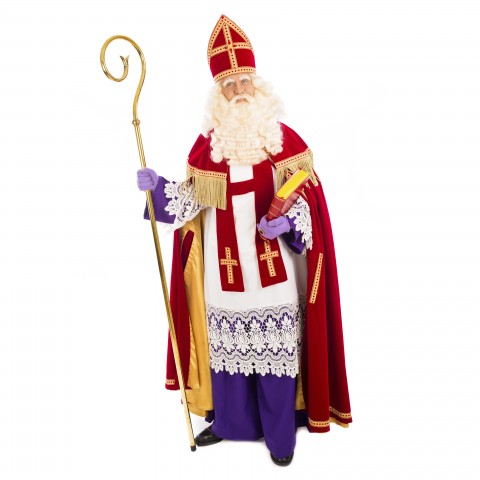



























 Table of Contents
Table of Contents


